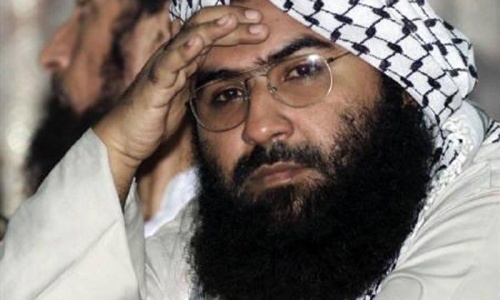WASHINGTON: The United States is urging Pakistan not to oppose moves to put Jaish-e-Mohammad and its leader Masood Azhar on a UN list of global terrorists, diplomatic sources told Dawn.
“This message has been conveyed to Pakistani officials in Islamabad and to Pakistani diplomats in Washington,” one of the sources said.
Earlier this week, India urged the international community to support its move to place Jaish and its leader on a UN list of terrorists that would also require Pakistan to take punitive action against both.
However, the Indian media reported on Monday that New Delhi “would only push” for this “if China indicated its support”.
In the past, China blocked several Indian moves to achieve this target.
India once again sought international support for its move after this week’s terrorist attack in Pulwama that killed more than 40 Indian soldiers.
Message has been conveyed to Pakistani diplomats in Washington
But a Chinese official indicated on Friday that while Beijing strongly condemned the terrorist attack in Pulwama, it was not yet ready to support India’s UN moves against Jaish and Masood Azhar.
“Given China’s statement, India is unlikely to push the Azhar ban in the UNSC until they get a green light from China,” The Times of India reported.
In Washington, however, the Pulwama attack generated great sympathy for India.
“We stand with India as it confronts terrorism. Pakistan must not provide safe haven for terrorists to threaten international security,” tweeted US Secretary of State Michael Pompeo.
In a separate statement, the State Department called on “all countries to uphold their responsibilities pursuant to UN Security Council resolutions to deny safe haven and support for terrorists”.
US National Security Adviser John Bolton telephoned his Indian counterpart Ajit Doval and then issued a statement, reminding all UN members, including Pakistan, to “uphold UNSC responsibilities to deny safe haven and support for terrorists”.
But his statement did not include two key points that an Indian statement on the Doval-Bolton call attributed to him:
US support for India’s “right to self defence” and offering “all assistance to India”.
The words attributed to Mr Bolton were interpreted in India as indicating US support for any possible Indian military action against Pakistan.
But the points that the Indian media built its narrative on were also missing from US media reports on the Pulwama attack and its consequences.
Instead, the media pointed out that the attack had placed Washington “in an awkward position”.
The media noted that Washington wants Islamabad’s help to end the war in Afghanistan and senior US officials have cautiously praised Pakistan’s help in recent months toward the Afghan peace process.
“President Trump’s emphasis on a pullout from Afghanistan increases Pakistan’s importance to US regional policy,” one such report claimed.
“The US government might continue to condemn Pakistan for providing terrorist groups with a safe haven, but that would be the possible extent of its support for India,” argued a Stanford scholar Asfandyar Mir in an article he wrote for The Washington Post.
“As important as the long-term India-US relationship may be in the eyes of US strategists, the needs of the conflict in Afghanistan — and Pakistan’s role there — are likely to take precedence in the short run,” he wrote.
Published in Dawn, February 19th, 2019















































